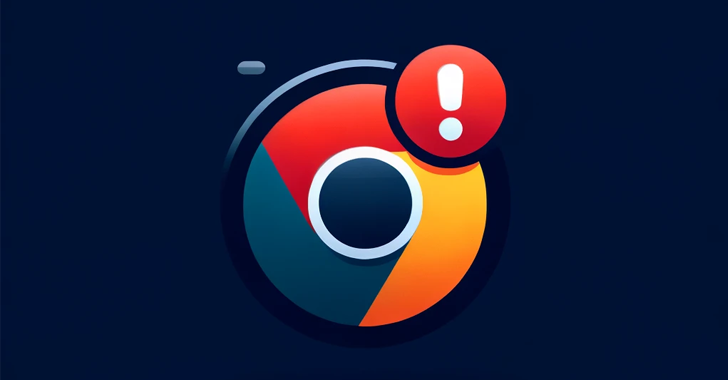Today’s Current Affairs: Google has recently addressed a set of security issues in its Chrome browser, including a zero-day vulnerability that has been exploited in the wild. The CVE-2024-4947 vulnerability, reported by Kaspersky researchers, relates to a type confusion bug in the V8 JavaScript engine. This marks the third zero-day Google has patched within a week, emphasizing the importance of updating to Chrome version 125.0.6422.60/.61 for Windows and macOS, and version 125.0.6422.60 for Linux to mitigate potential threats. Users of Chromium-based browsers are also advised to apply fixes as they become available to stay protected.
1. What is the CVE identifier for the zero-day vulnerability in Google Chrome?
– CVE-2024-4947
– CVE-2024-4671
– CVE-2024-4761
– CVE-2024-5050
Answer: CVE-2024-4947
2. What type of vulnerability does CVE-2024-4947 relate to?
– SQL Injection
– Type confusion bug
– Cross-site scripting
– Buffer overflow
Answer: Type confusion bug
3. Who reported the CVE-2024-4947 vulnerability to Google?
– Microsoft researchers
– Symantec researchers
– Kaspersky researchers
– McAfee researchers
Answer: Kaspersky researchers
4. How many zero-days have been resolved by Google in Chrome since the start of the year with CVE-2024-4947?
– 3
– 5
– 7
– 9
Answer: 7
When was the zero-day vulnerability in Chrome reported?
The zero-day vulnerability in Chrome, assigned the CVE identifier CVE-2024-4947, was reported on May 13, 2024 by Kaspersky researchers Vasily Berdnikov and Boris Larin.
What is the vulnerability about?
The vulnerability relates to a type confusion bug in the V8 JavaScript and WebAssembly engine in Chrome. Type confusion vulnerabilities arise when a program attempts to access a resource with an incompatible type, allowing threat actors to perform out-of-bounds memory access, cause a crash, and execute arbitrary code.
How many zero-days have been patched by Google in Chrome so far this year?
With CVE-2024-4947, Google has patched a total of seven zero-day vulnerabilities in Chrome since the start of this year.
What action should users take to protect themselves from potential threats?
Users are recommended to upgrade to Chrome version 125.0.6422.60/.61 for Windows and macOS, and version 125.0.6422.60 for Linux to mitigate potential threats. Users of Chromium-based browsers such as Microsoft Edge, Brave, Opera, and Vivaldi are also advised to apply the fixes as and when they become available.
Today's Current Affairs highlight a critical security issue in Google Chrome browser, with the discovery of a new zero-day vulnerability that has been actively exploited in the wild. The CVE-2024-4947 vulnerability, identified by Kaspersky researchers, stems from a type confusion bug in the V8 JavaScript and WebAssembly engine. This flaw allows threat actors to execute arbitrary code, posing serious risks to user data and privacy. Google has swiftly released patches to address this and other security issues, urging users to update their Chrome browser to the latest version to stay protected. It's essential for Chromium-based browser users to be vigilant and apply fixes as they become available to safeguard against potential threats. Stay informed and secure in today's digital landscape.
| Today's Current Affairs: Chrome Zero-Day Vulnerability |
|-----------------------------------------------------------|
| **Date:** May 16, 2024 |
| **Topic:** Browser Security / Vulnerability |
Google has rolled out fixes to address a set of nine security issues in its Chrome browser, including a new zero-day that has been exploited in the wild. The vulnerability, assigned the CVE identifier CVE-2024-4947, relates to a type confusion bug in the V8 JavaScript and WebAssembly engine. It was reported by Kaspersky researchers Vasily Berdnikov and Boris Larin on May 13, 2024.
Type confusion vulnerabilities arise when a program attempts to access a resource with an incompatible type. It can have serious impacts as it allows threat actors to perform out-of-bounds memory access, cause a crash, and execute arbitrary code. This marks the third zero-day that Google has patched within a week after CVE-2024-4671 and CVE-2024-4761.
As is typically the case, no additional details about the attacks are available and have been withheld to prevent further exploitation. Google is aware that an exploit for CVE-2024-4947 exists in the wild. With CVE-2024-4947, a total of seven zero-days have been resolved by Google in Chrome since the start of the year.
Users are recommended to upgrade to Chrome version 125.0.6422.60/.61 for Windows and macOS, and version 125.0.6422.60 for Linux to mitigate potential threats. Users of Chromium-based browsers such as Microsoft Edge, Brave, Opera, and Vivaldi are also advised to apply the fixes as and when they become available.
Found this article interesting? Follow us on Twitter and LinkedIn to read more exclusive content we post.







1 thought on “Google Patches Latest Chrome Zero-Day Vulnerability: Current Affairs Question and Answers”